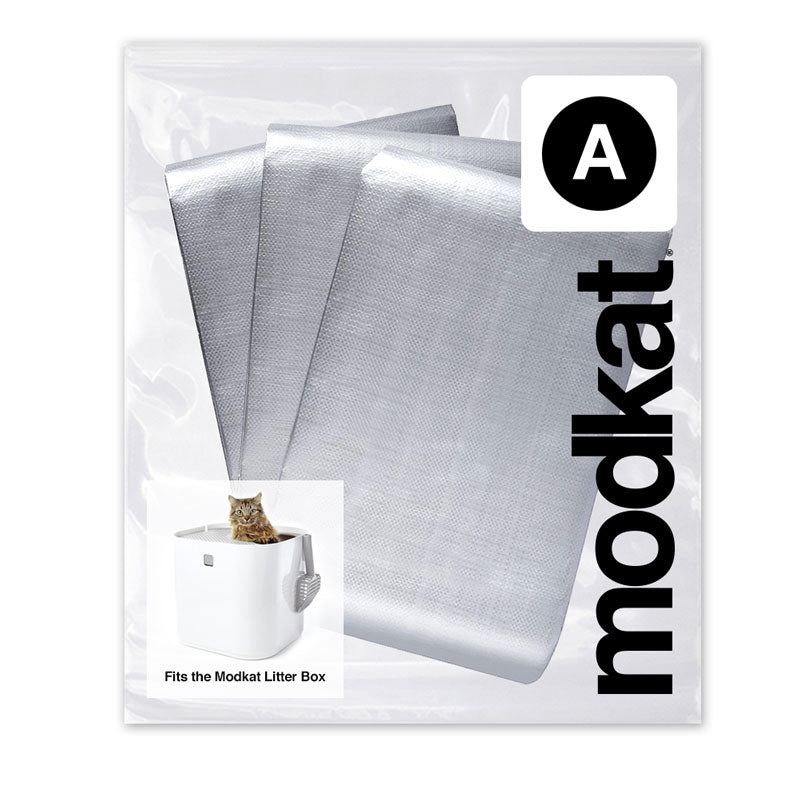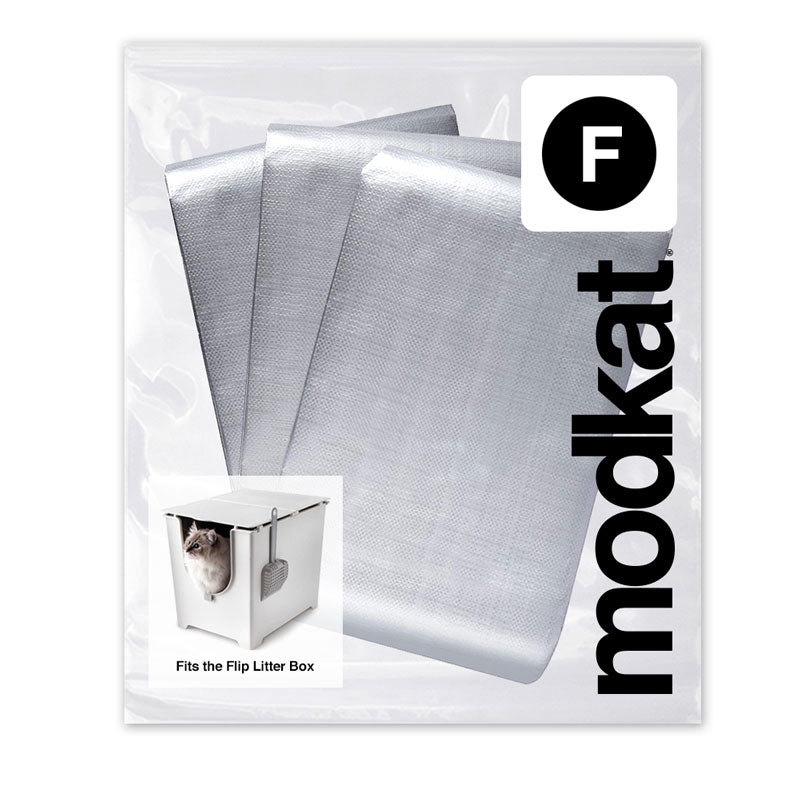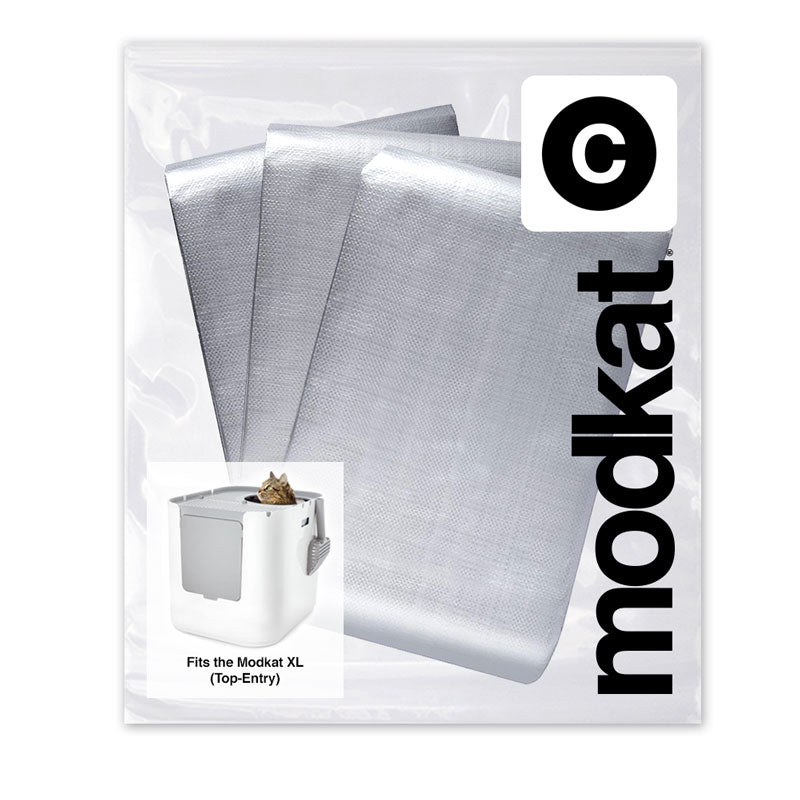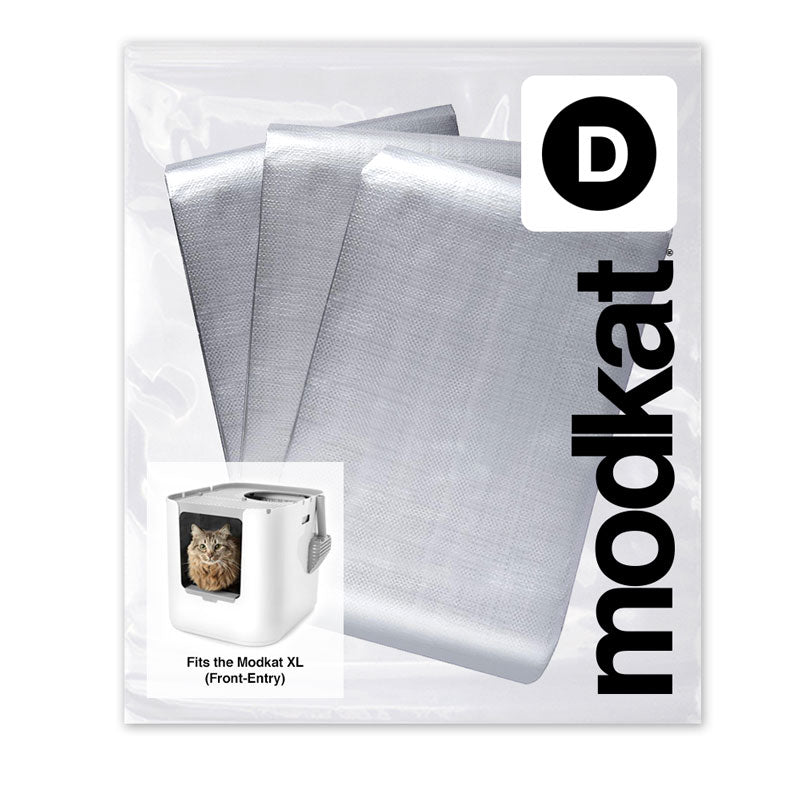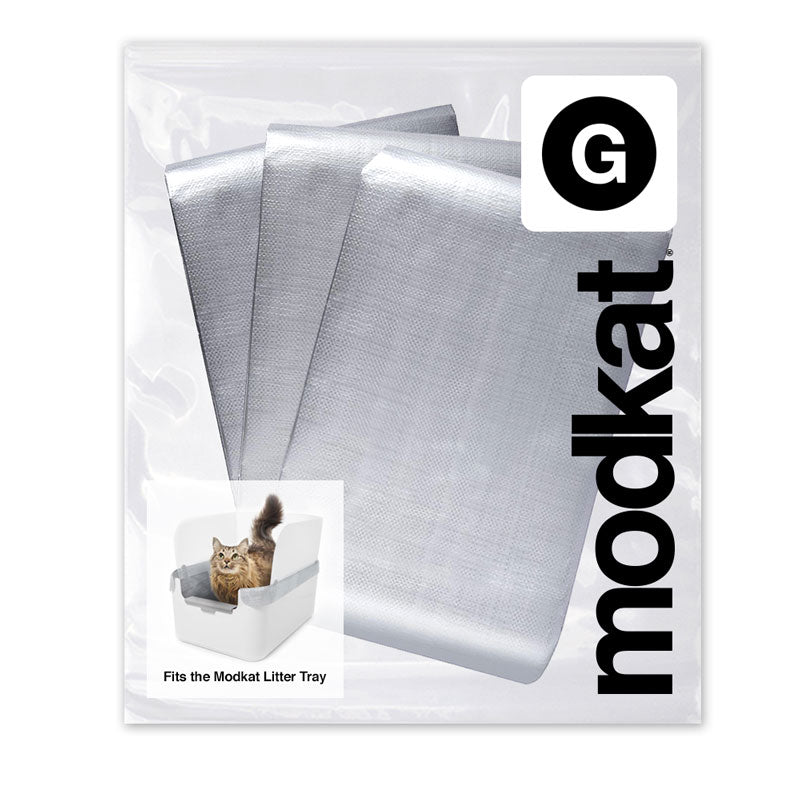Your Cart is Empty
$12 CAD shipping on orders over $62 CAD
$12 CAD shipping on orders over $62 CAD
Litter Boxes
Accessories
First-time cat parent? Here's what you need to know.
Are you one of the scores of Americans who have just adopted a pet from a shelter during the COVID-19 pandemic?
Shelter-in-place legislation has been tough, but one good thing about it: animal shelters are emptying out.
If you've just welcomed a new cat into your home, congratulations on your decision! Cats make warm, sensitive, and delightful pets.
Most cats are enigmatic, precocious, and relatively self-sufficient. These charming animals entertain, mesmerize, and delight us. To love a cat is to strive to understand its personality, idiosyncrasies, and inherent needs.
Until you truly understand the feline species, you can’t fully appreciate your new-found, furry BFF. Research, observe, and engage to learn what makes your unique feline tick. Your active participation will result in a more meaningful and enriching relationship with your four-legged companion.
If you’re new at this cat parent stuff, you'll want to keep these basic tips in mind:
1. Provide a safe and secure place to go potty. Cats need to feel safe when they eliminate. Choose a place for the litter box that’s relatively quiet and removed from high-traffic areas, but still easy to access. Laundry rooms are not ideal as a washing machine or dryer kicking on and off might spook your kitty when he’s preparing to pee or poop. That association might just be enough to result in litter-box aversion, which will lead a cat to eliminate in inappropriate locations such as your sofa or carpet.
Understanding your cat: Cats prefer an out-of-the way place to do their business because in the wild they eliminate as far away from their nest as possible and cover it to protect their brood from predators that may track the scent of their droppings. That’s why it’s important to find a spot for the litter box that works for everyone in the house.
2. Let your cat pick the litter box. You might go through a few litter boxes before you discover just what your cat prefers, but he will quickly let you know what he likes. Some cats enjoy doing business proudly in wide-open boxes while others prefer the privacy of a covered litter box. If your cat leaves his droppings uncovered or is doing his business right outside the box, he could be signaling his dislike for his “toilet.” Simply try another type. At Modkat, we offer a variety of litter boxes to cater to any feline's taste.
Understanding your cat: It’s difficult for a cat to communicate his likes and dislikes, especially when it comes to bathroom facilities. A cat will resort to the only way he knows to get his point across, which might mean missing his target. As a cat's parent, try to observe and respond with compassion.
3. Just as important as the kind of litter box you set out for your cat is the type of litter you fill it with. Cats typically prefer unscented, clumping and non-clay litter, which makes it easy for you to scoop. Keep the litter approximately four inches deep, adding more if necessary once you’ve scooped. Cats need enough to dig around in and cover whatever they leave behind. If they aren’t keen on the feel or depth of the litter, they might just leave their droppings uncovered, and that could mean an offensive odor in the house.
Understanding your cat: Cats’ paw pads are sensitive. They may not like how a certain type of litter feels on their feet or how it smells since their noses are equally as sensitive. So, if your cat shows signs of aversion, simply try another litter type.
4. Provide a scratching post or scratching pad. Most everyone becomes annoyed when their cat begins scratching the furniture, rugs, or curtains. Naturally, no one wants their belongings destroyed. To deter a cat from ruining your things, be sure to provide her with a scratching post and/or a scratching pad.
Understanding your cat: Cats have a natural need to scratch. It’s inherent behavior that not only helps them relieve tension in their back and shoulders but also allows them to shed the old outer nail sheath to expose new growth. Cutting your cat’s nails every two to three weeks helps by keeping them blunt.
5. Supplement your cat’s grooming with a good brushing. Cats are adept at keeping themselves clean and well groomed. They will spend hours licking their bodies and cleaning their hindquarters, especially after eating and after exiting the litter box. You can help by brushing your cat’s fur frequently, which reduces hairball development and shedding in your home.
Understanding your cat: Cats groom throughout the day to remove any debris, fleas, or ticks; to cool down his body if he’s overheated; to reestablish his scent if you’ve petted or brushed him; to relieve stress; to show affection; to heal a wound; and to stimulate circulation (their tongues are rough, which increases circulation).
6. Play often with your cat. Hopefully, you plan to keep your kitty indoors. An indoor cat lives longer than one that wanders around outdoors because they have less risk of harm or injury. An indoor cat, however, needs more stimulation since being outdoors enables him to explore and chase prey. As a cat parent, you’ll need to provide toys that mimic his natural instincts to hunt, pounce, and stalk his prey. Look for interactive toys such as play mice, string, and feathers to keep your cat entertained and engaged. Cats also love empty boxes and laser pointers, which can provide you with loads of laughs as your cat has a ball with his playthings.
Understanding your cat: Interactive fun with your cat not only provides exercise and mental stimulation, but it also helps you build a bond with your kitty. Playing with your furry friend fosters good rapport and trust. A trusting kitty will express her affection for you in a variety of ways such as head bunting, licking you, twirling around your legs, and curling up in your lap.
When you become a cat parent for the first time, it can be both thrilling and taxing. Like any other relationship, the one you build with your new feline roommate begins with a courtship period. So do some research early on about cat behavior to better understand your furry friend. After all, cats can live around 20 years so you’ll want to nurture a relationship that you can both enjoy long after social distancing is just a memory.
Shop the Modkat litter boxes and accessories to freshen up your cat litter area today!
Purrr News.
Join our email list and get exclusive access to new products, the best cat litter box health articles, and 10% off your first order.
Products related to this blog:
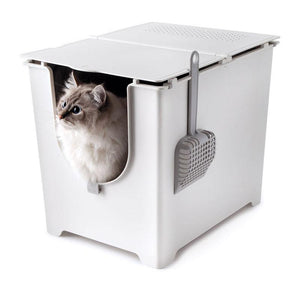
4084 reviews
"This litter box keeps everything in, nothing gets out the sides."
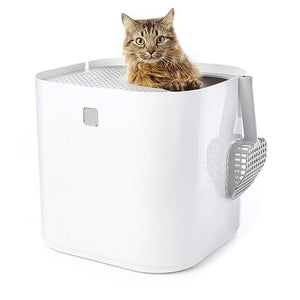
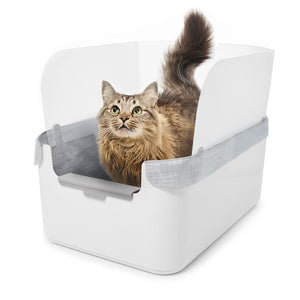
779 reviews
"My beautiful ragdoll cat and I both love the new Modkat Litter tray!"
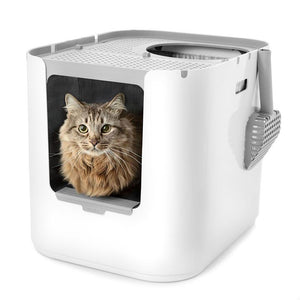
1893 reviews 
"It looks nicer than any other hooded or open option we considered."












